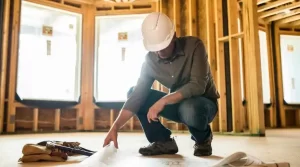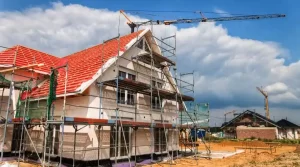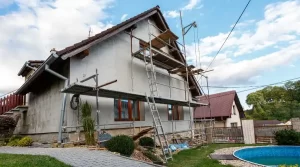The ever-increasing impact of climate change, evident in extreme weather events and ecological disruptions, has underscored the urgent need for sustainable practices. Among the industries at the forefront of this change is construction, where embracing the principles of the 3 Rs – Reduce, Reuse, and Recycle – holds the key to a greener and more responsible future.
A Wake-Up Call: Construction’s Environmental Impact
In a world grappling with the effects of environmental degradation, it is vital to recognize the role that the construction sector plays. Recent data from the Environmental Protection Agency (EPA) serves as a stark reminder of the waste generated by construction activities. The EPA’s 2018 report revealed a staggering 600 million tons of construction and demolition (C&D) debris in the United States, surpassing the waste produced by households and businesses combined.
The primary contributor to this waste is demolition, accounting for over 455 million tons of C&D debris, with approximately 145 million tons finding their way to landfills. However, the construction industry has begun taking meaningful steps towards a more sustainable future by embracing the 3 Rs.
Reduce: Pioneering Efficiency Through Innovation
The “Reduce” principle hinges on minimizing waste and optimizing resource utilization. Jersey City Remodelers is a firm believer in this philosophy, channeling innovation to redefine construction practices:
- Modular Advancements: Prefabrication techniques, allowing offsite construction, epitomize efficiency and waste reduction. By crafting components to precise specifications in controlled settings, waste is minimized, and installation becomes seamless.
- Industrialized Scheduling: Streamlined, manufacturing-style approaches to scheduling enhance efficiency. This methodology, complementing modular techniques, results in fewer shifts and reduced resource consumption, amplifying project efficiency and safety.
- Energy-Efficient Designs: Prioritizing energy-efficient designs reduces a building’s carbon footprint. By incorporating passive heating and cooling techniques and energy-efficient appliances, we curtail energy consumption and environmental impact.
Reuse: Breathing New Life into Materials
The “Reuse” principle advocates for repurposing existing materials and structures, diverting them from landfills. Jersey City Remodelers champions this principle through:
- Adaptive Reuse: Retrofits and adaptive reuse transform existing structures into functional spaces. By repurposing buildings, historical significance is preserved, and the demand for new resources is curtailed.
- Material Salvaging: Salvaging materials from deconstructed buildings injects character and reduces waste. These materials, such as wood, metals and concrete, find new life in various forms, contributing to sustainability.
- Modular Construction Techniques: Modular construction’s adaptability allows for structures to be disassembled and reassembled. This approach promotes resource efficiency, reduces waste, and aligns with sustainable practices.
Recycle: Closing the Loop
Recycling, the third pillar, emphasizes diverting waste from landfills through responsible material reuse. Jersey City Remodelers’ commitment to recycling is evident in these strategies:
- Material Recycling: Diverse building materials, such as asphalt, concrete, wood, and metals, find new life through recycling. Embracing recycling practices reduces environmental impact and supports circular economy principles.
- Waste Management Strategies: Implementing efficient waste management strategies, from site-separated sorting to commingled recycling, ensures responsible waste disposal and supports sustainable practices.
- Cradle-to-Cradle Design: Designs that facilitate end-of-life material recycling contribute to the circular economy. This approach minimizes waste and promotes the responsible use of resources.
Towards a Sustainable Tomorrow: A Call to Action
Embracing the 3 Rs isn’t just an option; it’s a necessity for a sustainable future. Jersey City Remodelers encourages architects and engineers to integrate adaptability, disassembly, and reuse into their designs. Planning for the long term minimizes waste, conserves energy, and underscores the importance of circularity.
Building Responsibly for Generations to Come
The path to a more sustainable construction industry rests on the pillars of Reduce, Reuse, and Recycle. Jersey City Remodelers takes pride in adhering to these principles, driven by a commitment to a responsible future. With every project, we reaffirm our dedication to environmental stewardship, embracing innovation and sustainable practices.
Elevating Sustainability: Building a Better Tomorrow
The journey towards a sustainable construction industry requires collaborative efforts and innovative strategies. As you contemplate your next project, consider the EPA’s strategies for adaptability, disassembly, and reuse. By integrating these practices into your designs, you contribute to a more sustainable future:
- Develop comprehensive plans for adaptation and disassembly, including structural information and contact details.
- Embrace modular building components and standardized systems to facilitate easy disassembly.
- Choose durable materials with potential for reuse or recycling, minimizing waste.
- Prioritize efficient structural systems and connections, favoring mechanical fasteners over sealants.
- Create spaces that allow safe building adaptation, repair, and disassembly, promoting a circular economy.
In this era of environmental consciousness, building responsibly isn’t just a choice; it’s an obligation. Together, let’s embrace the 3 Rs and pave the way for a more sustainable and resilient world.







